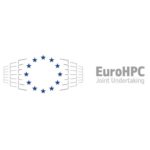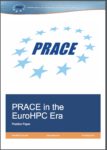In this video from the HPC User Forum in Santa Fe, Leonardo Flores from the European Commission presents: EuroHPC – The EU Strategy in HPC. “EuroHPC is a joint collaboration between European countries and the European Union about developing and supporting exascale supercomputing by 2022/2023. EuroHPC will permit the EU and participating countries to coordinate their efforts and share resources with the objective of deploying in Europe a world-class supercomputing infrastructure and a competitive innovation ecosystem in supercomputing technologies, applications and skills.”
EuroHPC Takes First Steps Towards Exascale
The European High Performance Computing Joint Undertaking (EuroHPC JU) has launched its first calls for expressions of interest, to select the sites that will host the Joint Undertaking’s first supercomputers (petascale and precursor to exascale machines) in 2020. “Deciding where Europe will host its most powerful petascale and precursor to exascale machines is only the first step in this great European initiative on high performance computing,” said Mariya Gabriel, Commissioner for Digital Economy and Society. “Regardless of where users are located in Europe, these supercomputers will be used in more than 800 scientific and industrial application fields for the benefit of European citizens.”
New Report: PRACE in the EuroHPC Era
The Partnership for Advanced Computing in Europe has published a new report: PRACE in the EuroHPC Era. PRACE is an international non-profit association with its seat in Brussels. “The EuroHPC Joint Undertaking will advance the European supercomputer landscape by completing the infrastructure pyramid at the top level with European leadership-class supercomputers. In a context of a strong international competition with USA, China and Japan, this development is highly expected by all stakeholders of HPC in Europe. For the European HPC users from science and industry, i.e. industrials and SMEs, the seamless integration of these new top-level systems and services into the existing European HPC-ecosystem is an issue of paramount importance.”
Video: HPC and the Future of Computing
In this video from ICT2018, Mateo Valero from the Barcelona Supercomputing Centre presents: HPC and the Future of Computing. “Europe is going in the right direction with EuroHPC and this must be sustained in the long-term. BSC fully supports this initiative and will do everything we can to help make it a success,” said Professor Valero, noting that much had been done since his previous keynote at ICT 2015 in Lisbon, where he already stressed the importance of developing European HPC technology.”
European Commission Lays out $1 Billion Roadmap for HPC Expansion
On September 28, 2018, the Council of Ministers officially backed the European Commission’s plans to invest jointly with the Member States in building a world-class European supercomputing infrastructure. “We need supercomputers to process it, develop artificial intelligence and find solutions to complex questions in areas like health and security. Today, most of our researchers and companies need to go outside of Europe to find the first-class computers they need. The EU cannot afford to lag behind. With EuroHPC, we will be able to benefit from innovation at home.”
Video: The European Processor Initiative
Jean-Marc Denis from EPI gave this talk at the HPC User Forum in Detroit. “The European Commission announces the selection of the Consortium European Processor Initiative to co-design, develop and bring on the market a European low-power microprocessor. This technology, with drastically better performance and power, is one of the core elements needed for the development of the European Exascale machine.”
Video: EuroHPC and European HPC Strategy
Leonardo Flores from the European Commission presents: EuroHPC and European HPC Strategy. “EuroHPC is a joint collaboration between European countries and the European Union about developing and supporting exascale supercomputing by 2022/2023. The EuroHPC declaration, signed on March 23 2017 signed by 7 countries marked the beginning of EuroHPC. Meanwhile there are 21 countries that have joined EuroHPC.”
Video: Piz Daint Supercomputer speeds PRACE simulations in Europe
In this video, the European PRACE HPC initiative describes how the Piz Daint supercomputer at CSCS in Switzerland provides world-class supercomputing power for research. “We are very pleased that Switzerland – one of our long-time partners in high-performance computing – is joining the European effort to develop supercomputers in Europe,” said Mariya Gabriel, Commissioner for Digital Economy and Society. “This will enhance Europe’s leadership in science and innovation, help grow the economy and build our industrial competitiveness.”
European Processor Initiative to develop chip for future supercomputers
Today the European Commission announced more details on the European Processor Initiative to co-design, develop and bring on the market a low-power microprocessor. “This technology, with drastically better performance and power, is one of the core elements needed for the development of the European Exascale machine. We expect to achieve unprecedented levels of performance at very low power, and EPI’s HPC and automotive industrial partners are already considering the EPI platform for their product roadmaps,” said Philippe Notton, the EPI General Manager.
Video: Europe’s Future in HPC
In this video, European officials and research scientists discuss why high performance computing is a vital component of the technologies that touch our daily lives. “I’m very pleased to see that Europe has realized that high performance computing is a cornerstone to science,” said Ben Bennet from HPE. “The days of hypothesis, conjecture, experiment are long gone, as there are things you can’t experiment with.”












